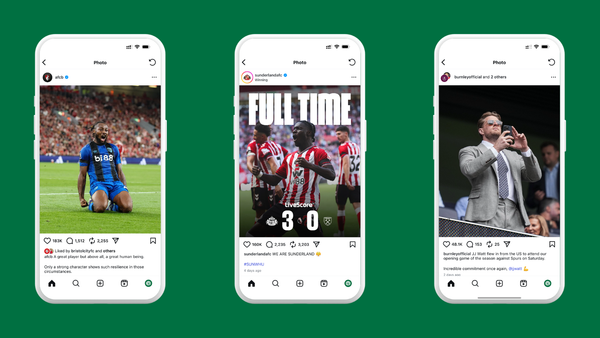Making good writing
Want to make your writing more effective? I've rounded up a few common techniques.

Writing is one of those skills that can make or break your content. Whether it's long-form pieces on your website or in a programme, or a social caption, the quality of the words you choose have a huge impact on whether something is understood and acted on. Or not.
In this piece I'm going to cover advice and guidance on how you can write more effectively for your audience and why this important.
NB: The headline of this piece is deliberate. The phrasing is designed to jar, making it more memorable. Did it catch your attention? Then it's working.
People are busy
The first step towards being more effective with your writing is recognising that people are busy. We're shown more content than we ever have been, with millions of posts being uploaded to social sites every day and our inboxes being bombarded with emails (yes, the irony isn't lost on me here).
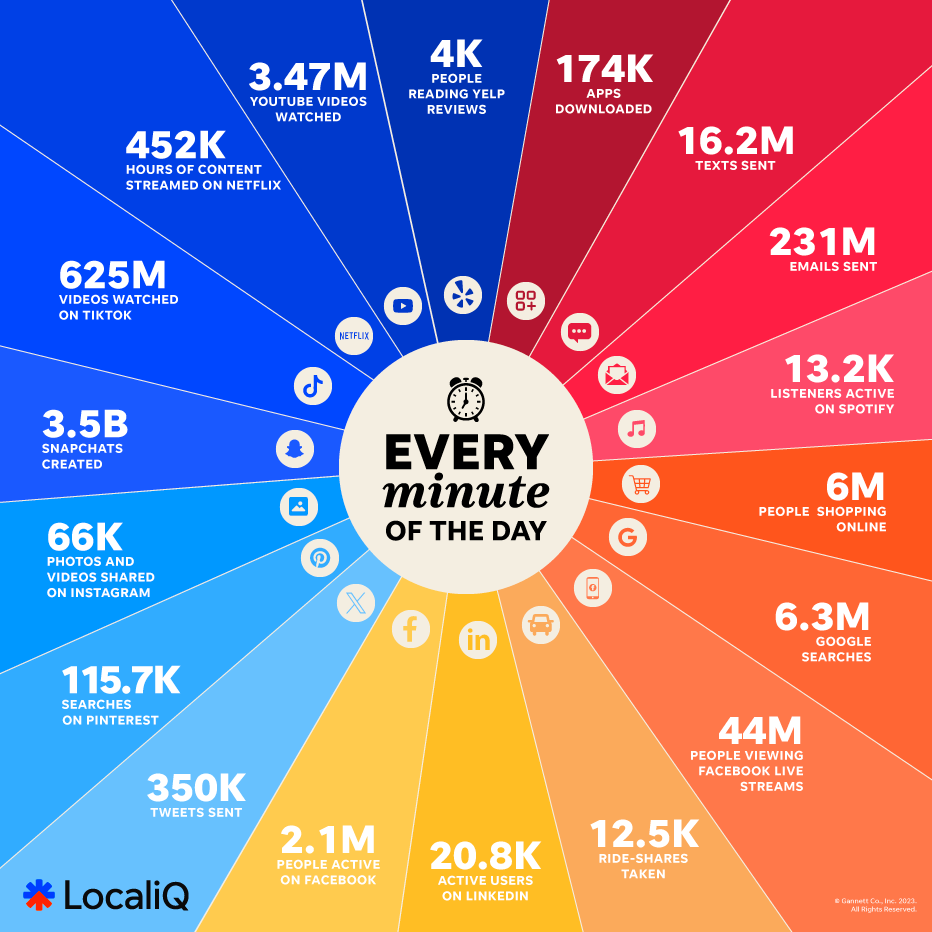
Think about the last time you were browsing social media. You likely didn't have one thing on your mind. At any one time we can be thinking of many things; what we're eating later, our weekend plans, present ideas for an upcoming birthday, a meeting that starts soon, something we watched last night. Good communication needs to cut through all of this and capture attention.
When we're reading things our brains do quick checklists based on what they see:
- Do we read this now?
- Do we read it later?
- How much effort are we putting in to reading this?
- Do we respond or react?
We don't know we're doing these things. I call it the "What's in it for me?" principle. If what you've published doesn't mean anything to someone then they'll ignore it. We're always looking for things that speak to us.
With this in mind, here are some tools and techniques that can improve your writing.
Use the active voice
Sentences that use the active voice are more straightforward to understand. They are written to be clear and direct. The idea is that the subject of the sentence is the one that performs the action. Here's an example:
- Shearer scored the winning goal.
- Newcastle won the match.
- Newcastle and Sunderland contested the game.
These are simple, but they show a subject ("Shearer", "Newcastle", "Newcastle and Sunderland") doing the action described by the verb ("scored", "won", "contested"). The subjects are all doing something in these examples.
Those same two sentences written in the passive voice would look like this:
- The winning goal was scored by Shearer.
- The match was won by Newcastle.
- The game was contested by Newcastle and Sunderland.
In these cases, the subject is acted on by the verb. Usually a preposition such as "by" is used in passive voice sentences. It often sounds a lot more formal to write this way. If you can remove the name of the person or team involved and still have a grammatically correct sentence then more often than not it's in the passive voice.
Sometimes teams use the passive voice to avoid naming opposition players. Take a look at the two examples below, both covering the same incident. The passive voice also reflects the mood of the team posting.
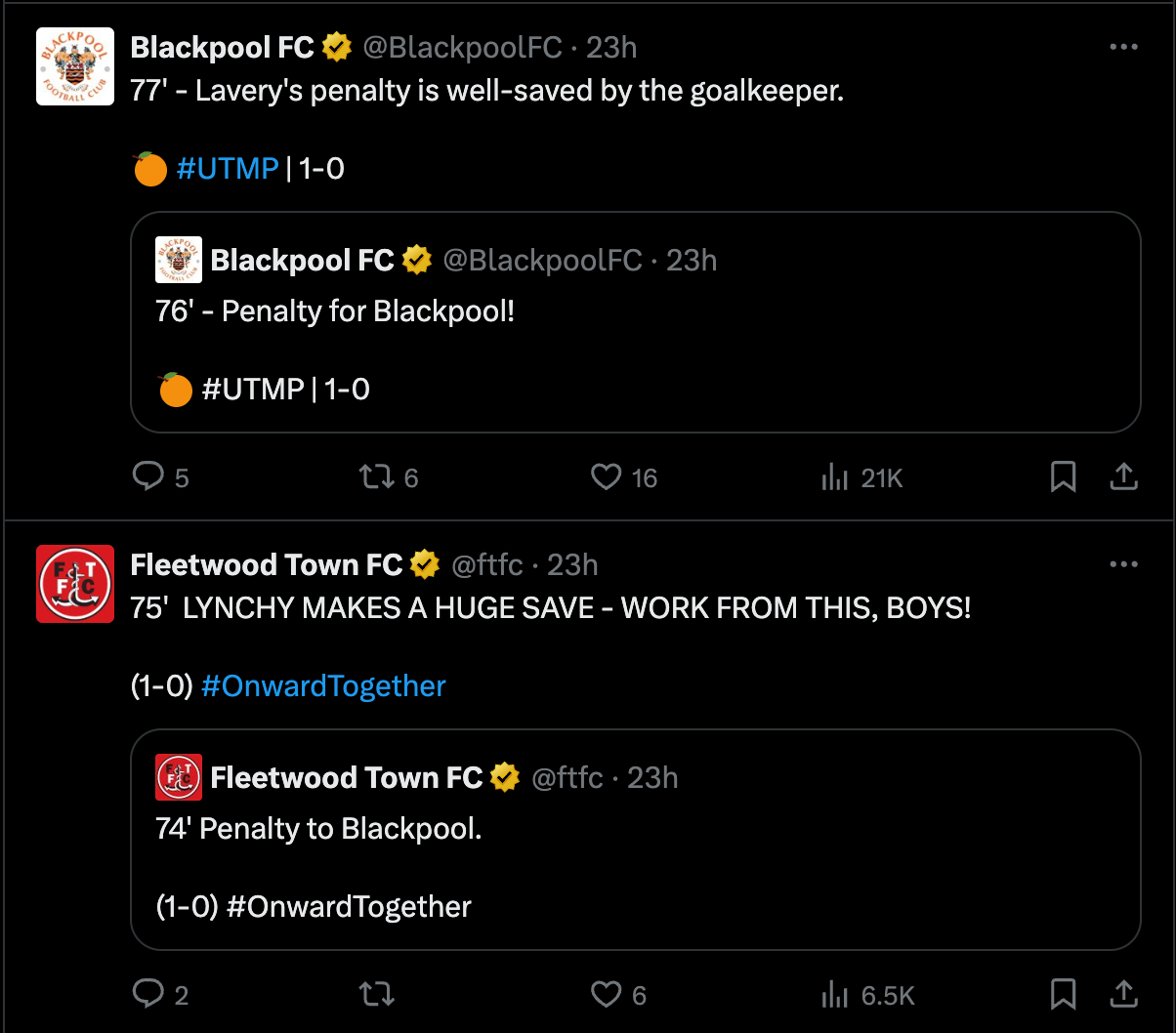
The first post from Blackpool is passive - you can remove "by the goalkeeper" and it still makes sense. Fleetwood's is written in the active voice as it names the subject first.
Here's how the Blackpool post could read in the active voice.
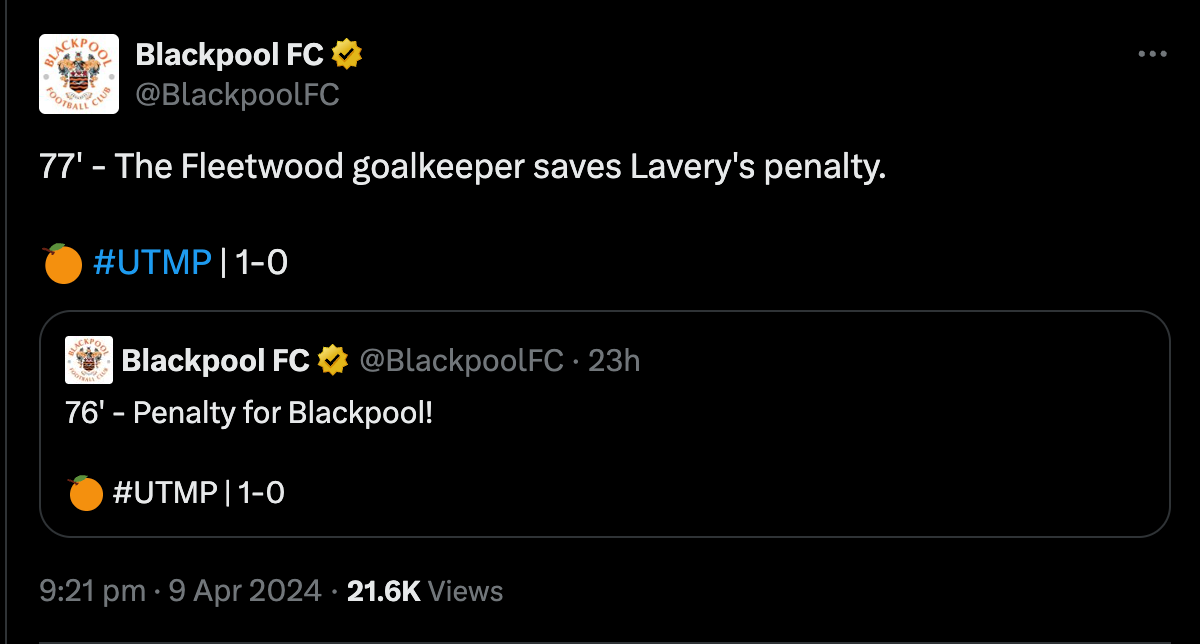
The passive voice isn't bad. There's a time and place for it. But the active voice is a better way of writing emails, social posts, and articles. It's more engaging, carries people along, and is simpler to understand.
Always talk to your audience
Your audience are the single most important thing in your marketing. Everything you write is trying to convince someone to do something, whether it's click, read, sign up, or buy. You should always address them.
To do this, make sure you use the word "you" in your writing (like I'm doing throughout). Your club isn't about you, it's about the fans. Everything you publish is for their benefit.
There are few words in marketing that have the same impact as "you". It makes things personal, which is engaging, and immediately makes the person reading it relate things to their own situation.
Think about how impersonal the below sounds.
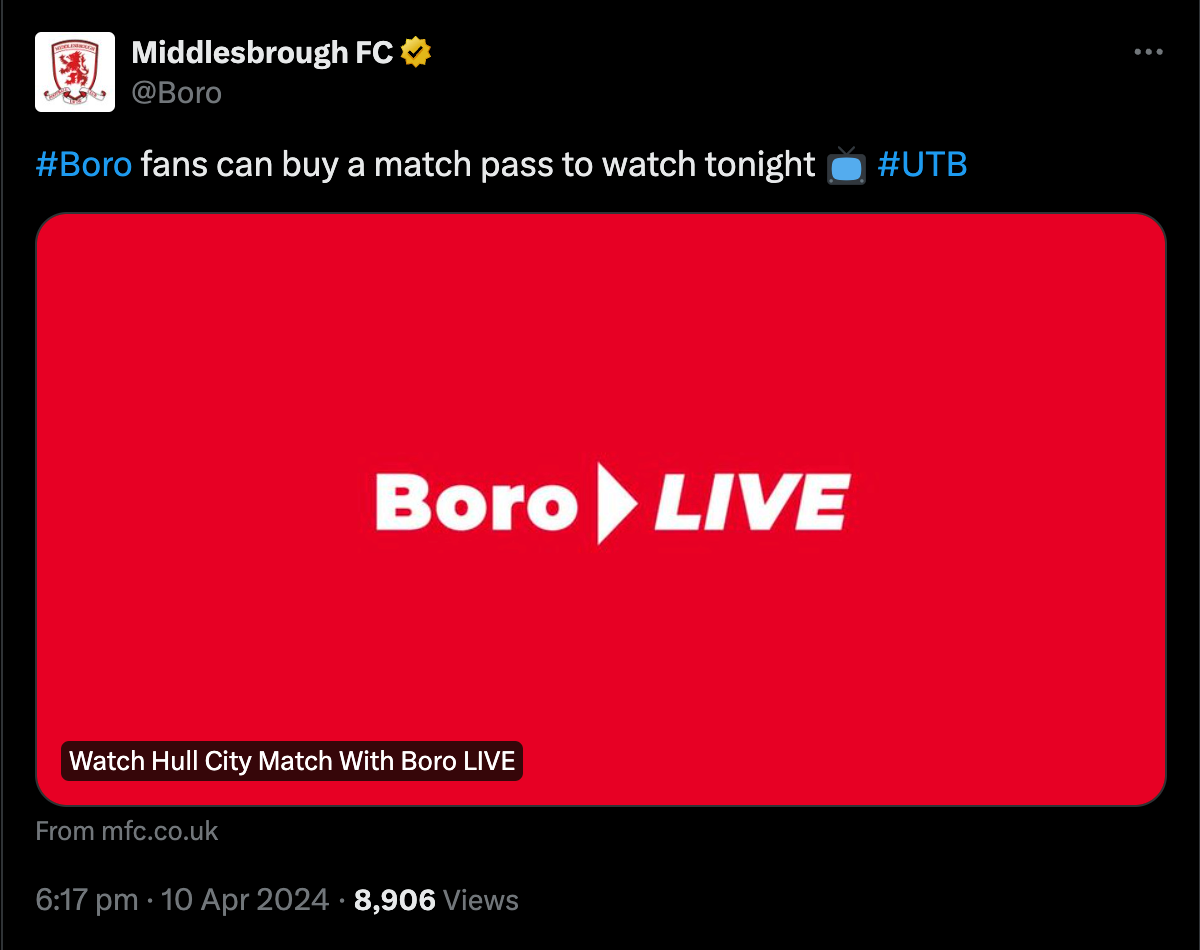
The use of "Boro fans" isn't the most welcoming. With a slight tweak the post can be made to sound more personal.

In any content, "you" should outnumber "I" or "we" (or, shudder, "the Football Club"). Some people say that it should be 80% second-person (you, your, yours) and 20% first-person (I, me, mine, we, ours). Don't get too stuck on percentages, just make sure you're using more second-person pronouns and you're on your way.
Plain English
The plain English campaign exists to make people re-consider the language they use. They provide a list of alternative words you should use to help make your writing more widely understood.
The purpose of the campaign is to encourage companies to remove jargon from public information. You can apply all of the same approaches to your work to make sure people can understand it easier.
Keep it simple
One of my favourite quotes to do with keeping things simple is that "it's not dumbing down, it's opening up".
When we use short sentences, plain English, and the active voice, we make things easier to understand. By contrast, when we litter sentences with superfluous and jargon-y phrases as a way of trying to demonstrate our own superior knowledge of a complex subject we can lead to a situation where a lot of people don't understand what it is we're writing about and they switch off halfway through the sentence because there's far too much to pay attention to and retain.
Hopefully that last sentence made the point clear.
If we use short sentences and familiar words, more people understand things. That includes people who may have higher literacy levels. Nobody is excluded when things are easy to understand.
The average reading age in the UK is estimated at being around nine years old. That means a good way of looking at your writing is to try and figure out if a nine year old would be able to understand it. If not, revise it.
The Hemingway editor is a good tool for this. It measures in American grades rather than English levels, but the end result is the same. Copy your last email or social post into it and see how it's graded. Then try and improve it.
Another way of keeping your writing simple is to limit the number of ideas in it. Each social post should focus on one thing. Each email should focus on one thing. Don't give people three or four different ideas in the same piece of content. By doing so you dilute the message, meaning fewer people will get what you want them to do.




